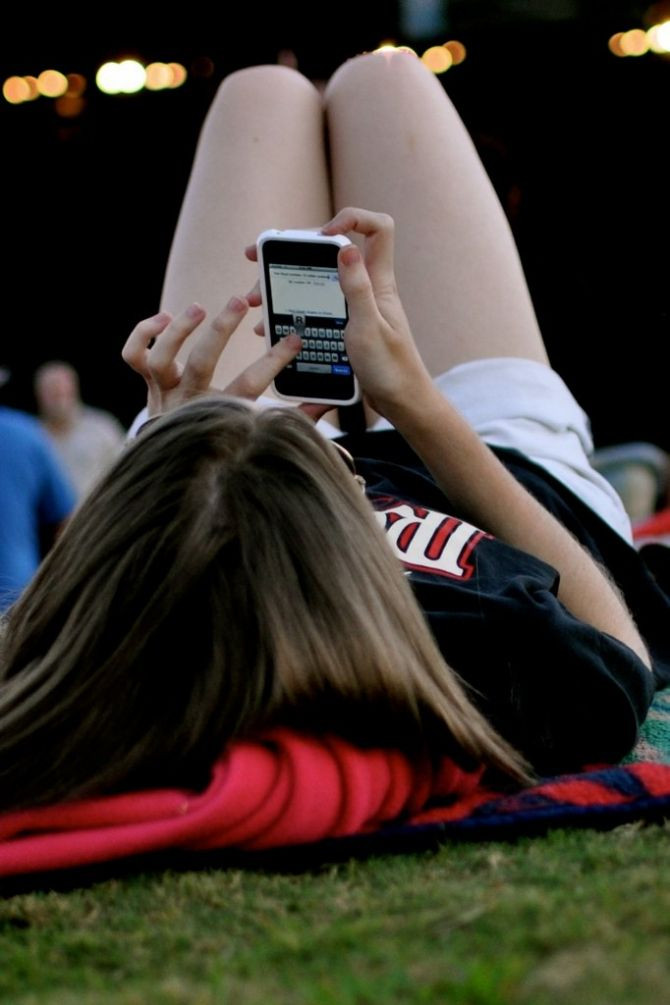If Your Teen Is Sexting, They Are Probably Having Sex As Well, Study Says

New research reveals if your child is sexting then he or she may be participating in other real-life sexual acts.
Sexting is the act of sending explicit images and messages that may be provocative.
According to Eric Rice, an assistant professor at the University of Southern California's School of Social Work in Los Angles, teens who participate in sexting are more likely to engage in real world sexual behavior.
The study observed more than 1,800 high school teens between the ages of 12 and 18 in Los Angeles. Research discovered that 15 percent of adolescents with cell phones reported they've sexted. Of the participants, 54 percent of adolescents know someone who has sexted. Rice and colleagues discovered that sexting, rather than being an alternative for risky behavior, is associated with risky sexual behavior.
Teens who engaged in sexting were seven times more likely to engage in sexual intercourse compared to their non-sexting peers. Teens who have friends that are sexting are 17 times more likely to sext. Additionally, adolescents who are sexting are 1.5 times more likely to not practice safe sex.
Additionally, it was revealed adolescent girls who participate in sexting are more likely to engage in risky sex, have multiple sex partners or use alcohol and drugs before sex. Professor Rice believes the study demonstrates what students are doing in their online lives are what they're doing in their offline lives.
"We recommend that clinicians discuss sexting as an adolescent-friendly way of engaging patients in conversations about sexual activity, prevention of sexually transmitted infections, and unwanted pregnancy. We further recommend that discussion about sexting and its associated risk behavior is included in school-based sexual health curricula," the researchers write.
Rice does want individuals to understand the results may not accurately represent rural areas. Furthermore a recent nationwide study found sexting rates to be much lower.
However a prior study, conducted by researchers from the University of Texas Medical Branch at Galveston, supports Rice's study. They found sexting also has a correlation to risky behavior. Teens that have sexted are more likely to participate in real-life sexual behaviors. Among teen girls, sexting may lead to more lewd behaviors and risk being labeled promiscuous or may be bullied due to sexting.
This study was published in the journal Pediatrics.
Published by Medicaldaily.com



























